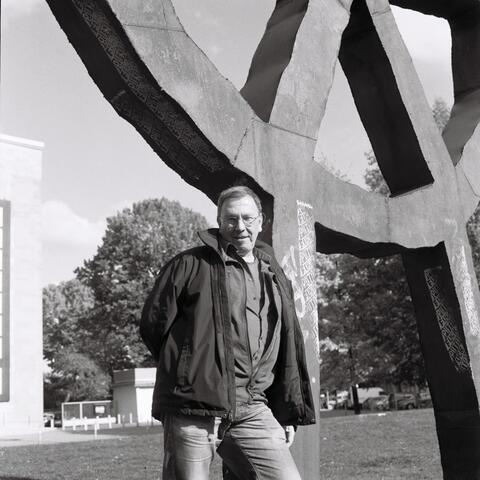
I arrived in Berlin in 2004, with my tail between my legs. American theater and I had somehow misunderstood each other, and now here I was, after my second big off-Broadway disaster, teaching at a now-defunct private college in East Berlin, the only institution that hadn’t gotten the memo.
My friend Jay took me to the Volksbühne to see 24 Hours Are Not a Day (published in Theater 35:1), a 2002 show still in rep, written and directed by René Pollesch. I remember three women onstage alternately talking and shouting. I remember they were really throwing their bodies into it—“Scheisse, Scheisse, Scheisse!”—shouting about concepts so exasperating they could only recover, afterwards, by railing an enormous line of coke off the Volksbühne’s enormous revolve. I remember a huge, deeply ironic video projection of a kid—Turkish? Arab?—playing with his little sister in a rubble-strewn lot. She’s in a pink dress, and he picks her up to play airplane, her arms spread out wide. The cameraman unwraps a Twix bar and holds twin bars of chocolate in front of the lens, and the boy flies his sister towards the cameraman, a huge smile on her face, until she’s close enough to take to a huge bite out of one of the towers. Everyone laughed. I remember those actresses arguing endlessly over the plot of John Carpenter’s Escape from New York, spiking English phrases like “world trade center” so hard they became malign mantras. I remember the distinct impression that language was speaking them.
“This is what it’s like,” I thought. “This is what it’s like to be buffeted by concepts and processes you can barely grasp.” Or at least, this was what it felt like to be a Berliner, or the particular kind of Berliner who attended shows at Volksbühne. There was no pretense at universality; Pollesch’s shows were made for a specific audience with a specific politics. There was no attempt at character: the actresses were just themselves, wearing their designated roles as loosely as hand puppets. There was no attempt at plot: the drama was trying to understand your world, with only regurgitated cultural theory and a brain fried by late capitalism at your disposal. The audience loved it; I loved it, even though I barely had any idea what anyone was saying (“Ich bin desorientiert!!!”)
That theater could just be this reckless, this precise, this hopeless, this funny—I had no idea you could do it this way. Tickets were cheap and you could grab a sandwich in the lobby and leave if you got bored; you could even come back and try it a second time. Frank Castorf’s Streetcar; Christoph Schlingensief’s takes on Wagner, Pollesch’s … well, everything. He was unbelievably prolific because his contributions to that amazing repertory were entirely occasional. Once they fell out of rep his shows were rarely revived, because the moment they spoke to had passed. They were self-portraits of him and his ensemble at a particular conjuncture, replaced by another and then another until, well—now there won’t be any more.
Over his career Pollesch went on to define the “postdramatic” theater with more than forty productions at the Volksbühne, many of them in the Prater, the second stage he ran from 2001-2007. Shows like Insourcing Home—People in Grotty Hotels assailed globalization and its political contradictions with dazzling irony. (“Postdramatic” never really communicated how emotional, how warm and humanized these attempts to grapple with the moment were.) Pollesch became the theater’s artistic director in 2021, poised to remake it for a new era.
His influence is boundless. Grappling with Pollesch, grappling with the immediacy of what I saw that night—the way concepts could be physical, funny, sad, personal—showed me, for one—an American performance maker—the way out of a million artistic impasses. I also understood immediately that I wouldn’t be able to bring this level of immediacy and contingency into American theaters because it’s just not what Americans use theater for (a 2006 plan to bring Pollesch to mount a production in New York ran aground on these very shoals). Instead, grappling with Pollesch and Castorf’s Volkbühne made me appreciate what we do use theater for—psychology, universality, transcendence—and accept that our values had been fatally misaligned the whole time. Pollesch’s greatest gift to this director, at least, was to drive me out of the theater in search of hospitable spaces where I could create a conversation that was more unrehearsed, more ludicrous, more cerebral and more local. I know others, even in Berlin, had the same experience. Even more than Castorf, René Pollesch was a visionary in his freakishly humane and small-scale way. I’m not even sure what he was doing qualifies as theater in any normal sense—but that, ultimately, was the point.
Forthcoming in Theater Volume 54, Number 3
